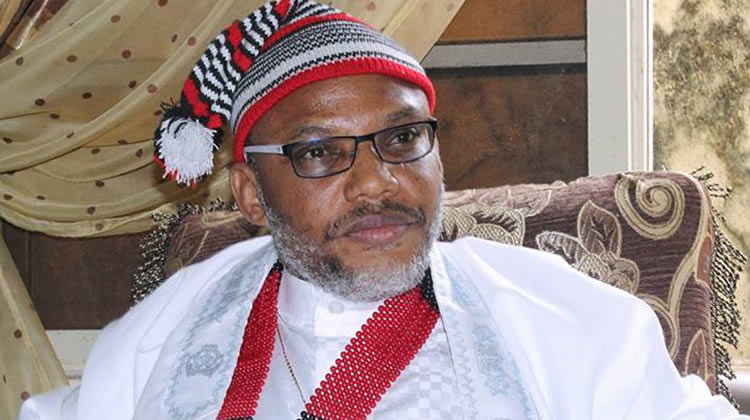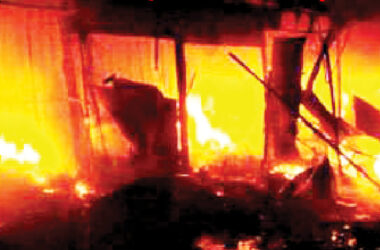A Federal Government witness, known as BBB, on Wednesday, presented a certified true copy (CTC) of the death certificate of Ahmed Gulak during the ongoing trial of Nnamdi Kanu, the leader of the Indigenous People of Biafra (IPOB). The trial is centered on charges of terrorism linked to the activities of IPOB.
BBB, the second prosecution witness, appeared before Justice James Omotosho at the Federal High Court in Abuja. The document, which pertains to Gulak’s death, was submitted as part of the evidence in the case. Gulak, who had served as a Special Adviser on Political Affairs to former President Goodluck Jonathan, was killed in 2012, allegedly by members of IPOB.
The death certificate was presented while the witness was being questioned by Chief Adegboyega Awomolo, SAN, a lawyer representing the Federal Government.
The legal team had initially intended to proceed with cross-examining the witness. However, Awomolo sought permission from the court to ask BBB a question before that process began. Chief Kanu Agabi, SAN, the defense counsel for Nnamdi Kanu, did not oppose the request, and Justice Omotosho granted approval.
Awomolo then asked BBB about a statement the witness had previously made, where he indicated that Nnamdi Kanu had called for a sit-at-home order during a radio broadcast. This order allegedly contributed to the death of Gulak. BBB confirmed this statement, noting that he had participated in the investigation that led to identifying the perpetrators behind Gulak’s death.
The witness also explained that the death certificate, which had been provided by the police, was from the Nigeria Police in Owerri, Imo State.
It detailed the circumstances surrounding Gulak’s murder in 2021, an incident attributed to IPOB members. Following the confirmation, Kanu’s legal team expressed no objections to the admission of the document into the court record. As a result, Justice Omotosho marked the certificate as Exhibit PWJ.
After this, Awomolo requested that the death certificate be handed over to BBB, who proceeded to read aloud the contents of the document in open court.










